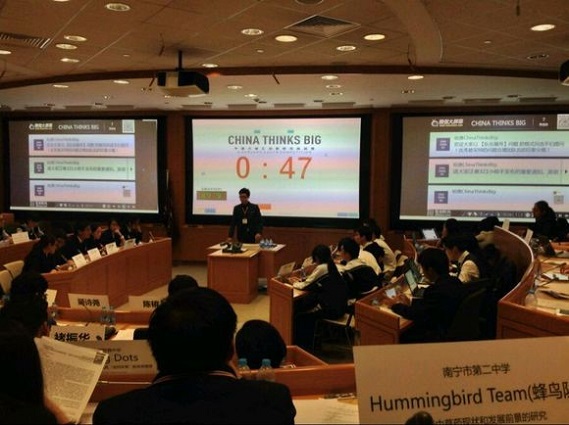
The ‘China Thinks Big’ competition, co-hosted by Harvard and Qinghua University, was attended by two Pao School students this year: Lucy Chen and Clementine Lee, both in Year 11. Among the over 670 teams that applied, Lucy and Clementine were selected to represent Pao School as one of the 72 teams to enter the competition’s second round on March 18.
The competition, usually referred to as ‘CTB,’ lasts four months. Each team selects a research topic or identifies a social issue, conducts extensive field and data research around the topic, and devises real-world solutions. Each team is evaluated based on the effectiveness of their solutions. Past winners have invented water-purification devices, promoted educational equality for women, or implemented traditional artisanship classes in schools to revive a dying art.
This year’s topics were vast and included human rights issues, pollution in major cities, cultural preservation and educational reformation. Pao School students researched the topic ‘Freedom of speech: formation, significance, and influence on Chinese students’ analytical thinking.’
The project was engaged from two approaches: historical research and social experimental reform. For the former, the team compared and contrasted Confucianist teachings with contemporary Western philosophies, investigated the effect of the keju (imperial examinations) on China’s intellectual development during the feudal period, and analysed the influence of the political environment on reading habits of the Chinese during the 20th century.
After the group had developed an understanding of the origins of Chinese free speech conventions, it carried out classroom reforms in our huikao (Middle School Graduation Examination) courses, shifting from lecture-style and teacher-oriented classrooms into a freer environment which utilised Socratic seminars and open-ended discussion questions. It also established analytical reading symposiums in five local schools, and proceeded to host biweekly and bilingual debate workshops in Shanghai. They hope their actions would extend the quality of analytical thinking beyond international school classrooms, and become accessible to all students within the educational system.
Results and rewards for the best of the 72 teams will be released at the end of March.